Zone du titre et de la mention de responsabilité
Titre propre
FHYA curation of selected materials from the Traditional Collection at the Johannesburg Art Gallery
Dénomination générale des documents
- Objet
- Document textuel
Titre parallèle
Compléments du titre
Mentions de responsabilité du titre
Notes du titre
- Source du titre propre: FHYA
Niveau de description
Selection
Cote
Zone de l'édition
Mention d'édition
Mentions de responsabilité relatives à l'édition
Zone des précisions relatives à la catégorie de documents
Mention d'échelle (cartographique)
Mention de projection (cartographique)
Mention des coordonnées (cartographiques)
Mention d'échelle (architecturale)
Juridiction responsable et dénomination (philatélique)
Zone des dates de production
Date(s)
-
2017 - (Online curation)
Zone de description matérielle
Description matérielle
- 31 Spoons
- 27 Catalogue Cards
- 20 Staffs
- 17 Object Tags
- 16 Figures
- 13 Headrests
- 8 Accession Records
- 7 Archive Files
- 7 Beadwork Items
- 5 Vessels
- 5 Snuff Spoons
- 4 Snuff Boxes
- 3 Clubs
- 3 Snuff Box Staffs
- 2 Beer Ladles
- 1 Smoking Pipe
- 1 Beer Skimmer
- 1 Headrest/Staff
- 1 Stool
- 1 Milk Pail
- 1 Drinking Cup
- 1 Knobkierie
- 1 Executioner’s Knobkierie
- 1 Set of Earplugs
Zone de la collection
Titre propre de la collection
Titres parallèles de la collection
Compléments du titre de la collection
Mention de responsabilité relative à la collection
Numérotation à l'intérieur de la collection
Note sur la collection
Zone de la description archivistique
Historique de la conservation
[Source - Chloe Rushovich for FHYA using materials provided by Nessa Leibhammer, 2018: The FHYA selection from the Traditional Collection at the Johannesburg Art Gallery was made by Nessa Leibhammer. She selected objects from the Traditional Collections that came from the FHYA target area of KwaZulu-Natal and immediately adjacent regions which she identified as probably dating to the nineteenth and early twentieth centuries.
The Traditional Collections were inaugurated by Christopher Till (head of the gallery 1983-1991) and in 1987, the gallery began acquiring material culture exclusively from the southern African region for this collection. The Traditional Collection comprises some 2500 mostly wooden and beadwork items, dating from the mid-19th century to the late 20th century. It includes accoutrements of daily use, as well as objects of a ceremonial, prestige or chiefly nature. It also includes beadwork worn by men, women, and children; bracelets; bangles; capes; shawls; skirts; headgear; and waistcoats. Objects of domestic use in the collection include ceramic vessels, carved wooden milk pails, spoons and platters, woven fibre baskets and reed and grass mats. JAG does not collect weapons or archaeological material unless they manifest what curators consider a high aesthetic standard. The gallery seeks particularly to acquire objects that manifest anthropomorphic or zoomorphic attributes as these align themselves with western sculptural genres - animated by the presence of a ‘being’ - be it human or animal. These are features that attempt to bring the collection closer to Fine Art and away from the topological, ethnographic mode which values multiple assemblies of a single type without a concern for aesthetics. Thus the gallery does not collect multiple samples of the same type of object since its focus, in line with an ‘art’ genre, is the single unique object. These carefully considered selections, exclusions and inclusions, have shaped the nature of what is considered ‘traditional’ at JAG. The first set of objects purchased by JAG was a collection of 114 headrests, part of a larger collection assembled by the Suisse Romande missionary, Reverend A. A. Jaques. These objects came mainly from the southern Mozambique region, as well as what was known as the eastern and north-eastern Transvaal (now Mpumalanga and Limpopo Provinces) and were purchased in 1987. Also in 1987, JAG’s holdings of southern African material culture were further augmented when the Brenthurst Collection, containing 862 items of southern African art, was placed on long-term loan at the institution. In 1992, the Horstmann Collection, totalling 93 objects, was acquired. In 2013, the JAG purchased 138 nineteenth- and early twentieth-century pieces from Professor Nicholas Maritz. These objects were classified by Maritz as ‘Northern Nguni’. Much of the Maritz collection was assembled by Jonathan Lowen in England and Europe, as was the entirety of the Brenthurst Collection.]
Portée et contenu
[Source - Chloe Rushovich for FHYA, 2018, using materials provided by Nessa Leibhammer: Nessa Leibhammer was the curator of the Johannesburg Art Gallery Traditional Collections from 1994 to 1996, and 2005 to 2013. Leibhammer, for the FHYA, identified objects from the Traditional Collections that came from the FHYA target area of KwaZulu-Natal and immediately adjacent regions which she identified as probably dating to the nineteenth and early twentieth centuries. She selected a series of items from the Brenthurst Collection (assembled by Jonathan Lowen); the Horstmann Collection (assembled by Udo Horstmann); the Maritz Collection (assembled by Nicholas Maritz); the Brodie Collection (assembled by Mordechai Brodie); the Karner Collection (assembled by Ken Karner) as well as items owned by the Jaques family, purchased by JAG in 1987. The selection includes a range of genre: carved wooden objects, metal and beadwork items, staffs, snuff boxes, headrests, vessels, baskets, pots, etc. She also purposefully selected objects where she knew there were similar examples in other, older, collections as well as notable items where no secure information is known, so as to open the possibility that such items might accrue an information context through appearing on the FHYA exemplar.
The FHYA ordered this material into ‘series’ with each ‘series’ being named after the collector.]
Zone des notes
État de conservation
Source immédiate d'acquisition
Classement
Langue des documents
Écriture des documents
Localisation des originaux
Disponibilité d'autres formats
Restrictions d'accès
Délais d'utilisation, de reproduction et de publication
Creative Commons License: CC BY-NC-ND
https://creativecommons.org/licenses/by-nc-nd/3.0/
Unless otherwise stated the copyright of all material on the FHYA resides with the contributing institution/custodian.
Instruments de recherche
Éléments associés
Accroissements
Identifiant(s) alternatif(s)
Zone du numéro normalisé
Numéro normalisé
Mots-clés
Mots-clés - Sujets
Mots-clés - Lieux
Mots-clés - Noms
- Five Hundred Year Archive (FHYA) ()
- Johannesburg Art Gallery (JAG) (Conservation)


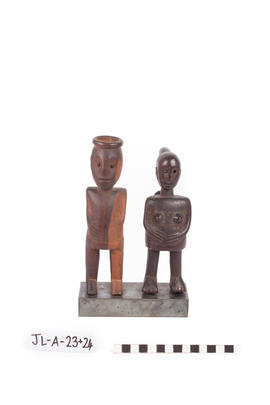
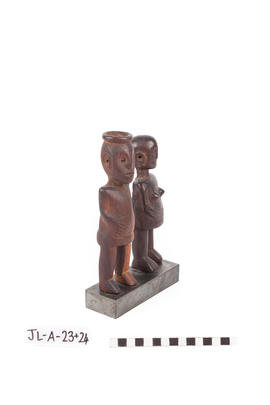
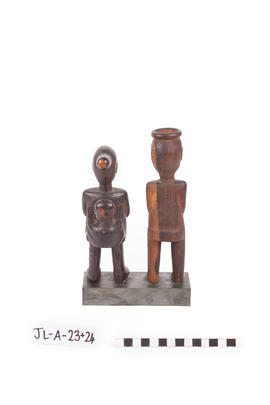
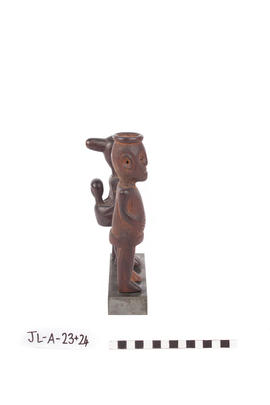

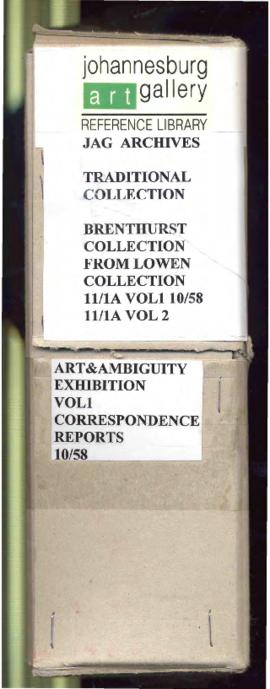
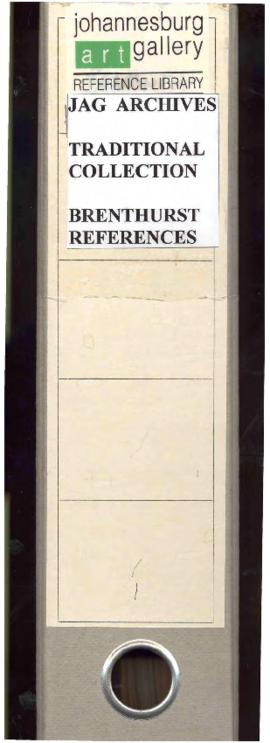
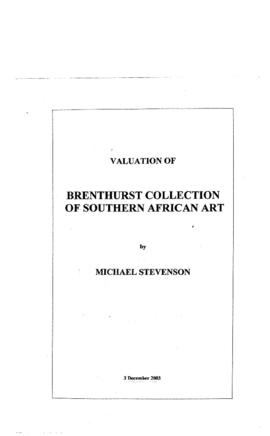
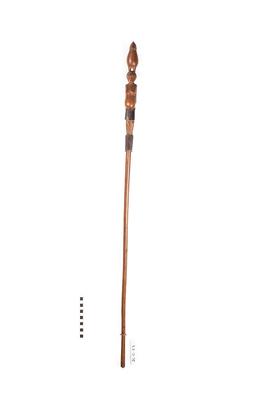
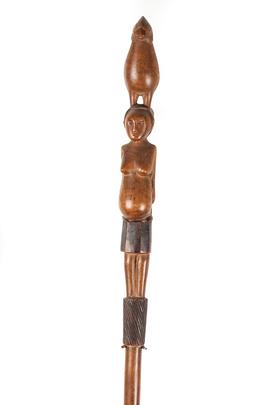
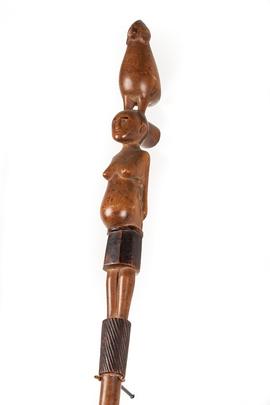

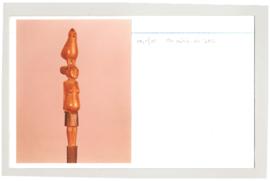
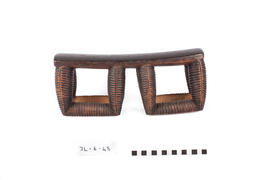
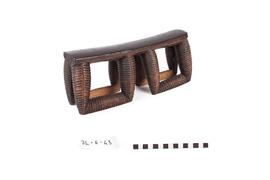
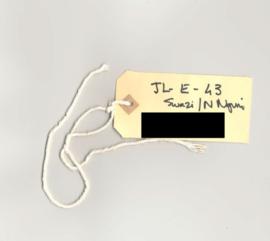

Material contributed by members of the public
Building an archive is a collective endeavour. Please help us grow the FHYA knowledge base.
If you want to add information to this page you can insert a hyperlink, add files and/or text to the box below.
In the case of material relevant to the FHYA as a whole please upload information HERE.
The FHYA does not vet this material but reserves the right to remove anything deemed to be racist, homophobic, sexist or otherwise offensive. Everything on the FHYA is licensed under a Creative Commons CC BY-NC-ND licence.
To make a contribution you must be a registered user. To register an account, click here. Note that after registration you will not be automatically redirected to this page.
If you have already registered but are not logged in, log in here.